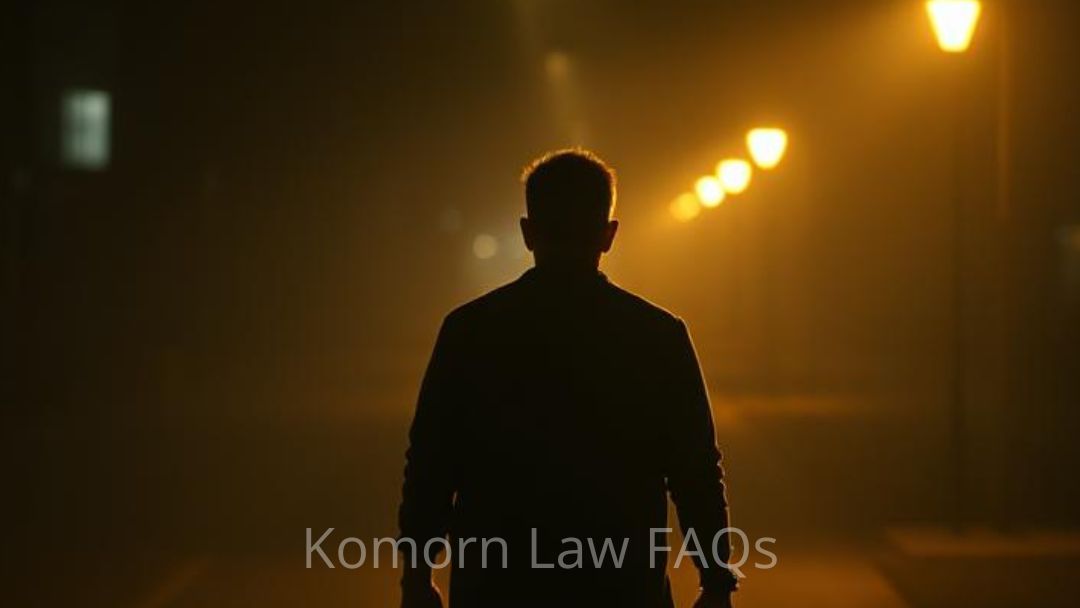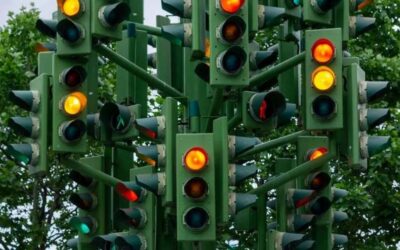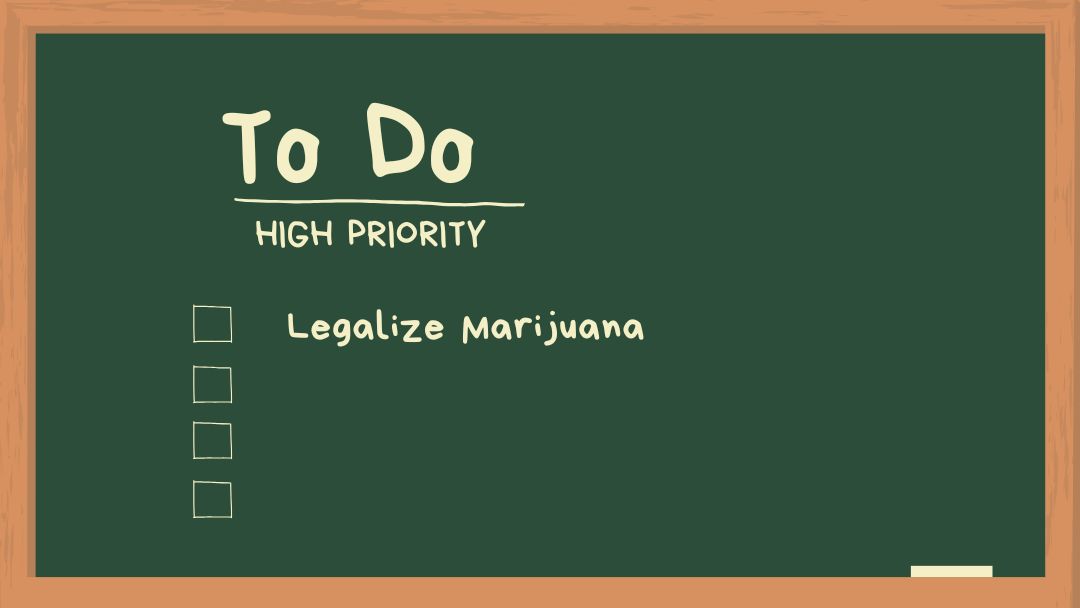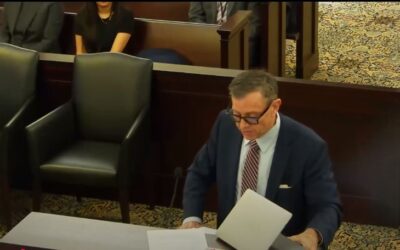Michigan Criminal Laws FAQs Assault with Intent to do Great Bodily Harm Less Than MurderAccording to Michigan State Law (Michigan Compiled Laws - MCL), Assault with Intent to do Great Bodily Harm Less Than Murder (AWIGBH) is a serious felony offense defined in MCL...

Criminal Law FAQs – Drinking Alcohol or Smoking Marijuana and Driving
Michigan Criminal Laws FAQs
Operating a Motor Vehicle Under The Influence
Walking is cool… For fun and excercise. Not because you lost your license. Don’t do the crime if you can’t pay the price. But if you do get charged with a crime. Better Call Komorn to fight for your rights.
Drinking alcohol or smoking marijuana and driving in Michigan is extremely dangerous and illegal due to the significant impairment these substances cause to a driver’s ability to operate a vehicle safely. Here’s why:
- Impaired Judgment: Both alcohol and marijuana affect judgment, leading to poor decision-making behind the wheel, such as misjudging distances, speed, and traffic situations.
- Reduced Reaction Time: These substances slow down a driver’s reaction time, making it difficult to respond quickly to unexpected hazards, pedestrians, or changes in traffic flow.
- Decreased Motor Skills and Coordination: Alcohol and marijuana impair motor skills and coordination, affecting steering, braking, lane keeping, and overall vehicle control.
- Altered Perception: Marijuana can distort time and distance perception, making it challenging to judge safe following distances and the speed of other vehicles. Alcohol also affects vision and spatial awareness.
- Increased Risk of Accidents: The combination of these impairments significantly increases the risk of being involved in a traffic accident, potentially leading to serious injuries or fatalities for the driver, passengers, and other road users.
- Legal Consequences: Driving under the influence of alcohol or marijuana in Michigan carries severe legal penalties, including fines, license suspension, jail time, and a criminal record.
FAQ 1: What is the legal blood alcohol content (BAC) limit for driving in Michigan, and what are the legal limits for marijuana?
In Michigan, the legal BAC limit for drivers 21 years or older is 0.08%. For drivers under 21, there is a “zero tolerance” law, meaning any measurable amount of alcohol can lead to a violation.
For marijuana, Michigan law prohibits driving with any amount of detectable THC (the psychoactive component of marijuana) in your system while operating a vehicle. Unlike alcohol, there isn’t a specific numerical threshold for THC. If law enforcement detects any amount of THC in your blood, you can be charged with Operating While Impaired by Marijuana (OWIM).
(Reference: MCL 257.625)
FAQ 2: What are the potential penalties if I am caught driving under the influence of alcohol or marijuana in Michigan?
The penalties for driving under the influence (DUI) of alcohol or marijuana in Michigan vary depending on the number of prior offenses and the specific circumstances of the case. Potential penalties for a first offense include:
- Fines: Up to $500 for OWI (alcohol) and up to $500 for OWIM (marijuana).
- Jail Time: Up to 93 days.
- License Suspension: Up to 180 days (with a restricted license possible after 30 days).
- Driver Responsibility Fees: $125.
- Community Service: Possible.
- Substance Abuse Evaluation and Treatment: Required.
Penalties increase significantly for second and subsequent offenses, including longer jail sentences, higher fines, longer license revocations, vehicle immobilization, and potential felony charges.
(Reference: MCL 257.625)
FAQ 3: Can I refuse a breathalyzer or blood test if I am suspected of DUI in Michigan?
Under Michigan’s implied consent law (MCL 257.625a), by operating a vehicle on public roads, you are deemed to have given your consent to submit to a preliminary breath test (PBT) at a traffic stop if lawfully detained for suspicion of drunk driving. Refusal to take a PBT can result in a civil infraction and fines.
For evidentiary breath or blood tests at a police station or hospital, refusal can lead to an automatic one-year suspension of your driver’s license (two years for a second refusal within seven years), even if you are not ultimately convicted of DUI. There are limited exceptions to this, such as a valid medical reason.
FAQ 4: What are some common roadside sobriety tests used by Michigan law enforcement, and are they mandatory?
Michigan law enforcement officers often use Standardized Field Sobriety Tests (SFSTs) during traffic stops where DUI is suspected. These typically include:
- Horizontal Gaze Nystagmus (HGN): Following a moving object with your eyes to check for involuntary jerking.
- Walk and Turn: Walking heel-to-toe along a line, turning, and walking back.
- One-Leg Stand: Standing on one leg while counting.
While officers may request you to perform these tests, you are generally not legally required to take them under Michigan law. Refusal to take SFSTs does not carry the same license suspension penalties as refusing an evidentiary breath or blood test. However, officers can still use your refusal and their observations of your demeanor and driving to establish probable cause for an arrest and a subsequent request for an evidentiary test.
Recent FAQ Posts – More Below
Criminal Law FAQs – Assault with Intent to do Great Bodily Harm Less Than Murder (AWIGBH)
Criminal Law FAQs – Operating a Vehicle with a High BAC
Michigan Criminal Laws FAQs Super Drunk (High Breath Alcohol Content)Operating a Vehicle with a High BAC (Super Drunk) - MCL 257.625(1)(c)FAQ 1: What BAC level qualifies as "High BAC" or "Super Drunk" in Michigan? Answer: In Michigan, operating a vehicle with a blood...
Criminal Law FAQs – Bench Warrant
Michigan Criminal Laws FAQs Bench WarrantsAccording to Michigan State Law (Michigan Compiled Laws - MCL), a Bench Warrant is a court order that directs law enforcement officers to arrest and bring a specific individual before the court. It's issued by a judge (from...
FAQ 5: What are some legal defenses against DUI charges involving alcohol or marijuana in Michigan, and how is Komorn Law experienced in fighting these types of charges?
There are several potential legal defenses that an experienced attorney can explore when fighting DUI charges involving alcohol or marijuana in Michigan. These defenses often focus on challenging the legality of the stop, the procedures used during the investigation, and the accuracy of the evidence presented:
- Illegal Stop: Arguing that the police officer lacked reasonable suspicion to initiate the traffic stop in the first place.
- Improper Administration of Field Sobriety Tests: Challenging whether the SFSTs were administered correctly according to standardized procedures, which can affect their reliability as evidence of impairment.
- Challenges to Breathalyzer or Blood Test Procedures: Questioning the calibration and maintenance of breathalyzer machines or the chain of custody and testing procedures for blood samples. This can involve scrutinizing logbooks, certifications, and the qualifications of the technicians.
- Medical or Physical Conditions: Presenting evidence that a medical condition or physical limitation (unrelated to impairment) could have affected performance on field sobriety tests or the accuracy of breathalyzer results (e.g., GERD).
- Rising Blood Alcohol Defense: In alcohol cases, arguing that your BAC was below the legal limit while driving but rose above it by the time the breath or blood test was administered.
- Lack of Probable Cause for Arrest: Asserting that the officer did not have sufficient probable cause to make the arrest for DUI, even if a test was eventually administered.
- Challenges to Marijuana Testing: Arguing that the presence of THC in blood doesn’t necessarily equate to current impairment, as THC can remain in the system for days or even weeks after use. Attorneys may challenge the lack of a specific legal impairment threshold for marijuana and the correlation between THC levels and actual impairment.
Facing charges for driving under the influence of marijuana or alcohol in Michigan?
Komorn Law has extensive experience in defending individuals charged with DUI offenses involving both alcohol and marijuana in Michigan. Their attorneys are knowledgeable about the nuances of Michigan DUI laws, the scientific principles behind breath and blood testing, and the proper administration of field sobriety tests. They are skilled at:
- Thoroughly investigating the circumstances of the arrest, including reviewing police reports, dashcam footage, and bodycam footage.
- Identifying potential violations of your constitutional rights during the traffic stop and subsequent investigation.
- Challenging the admissibility of evidence based on procedural errors or scientific inaccuracies.
- Working with expert witnesses, such as toxicologists and medical professionals, to challenge the prosecution’s evidence.
- Developing and presenting compelling legal defenses tailored to the specific facts of your case.
- Negotiating with prosecutors for reduced charges or alternative resolutions when appropriate.
- Aggressively representing clients at trial when a favorable outcome cannot be reached through negotiation.
If you are facing DUI charges in Michigan involving alcohol or marijuana, the experienced legal team at Komorn Law can provide you with a strong defense and fight to protect your rights and your future.
Komorn Law
Facing a Criminal Charge? – Better Call Komorn
Komorn Law
Areas of Service
We fight for our clients throughout the State of Michigan and Northern Ohio.
Here are some court contacts we frequently handle cases.
Oakland County
If you are facing any legal charges in Oakland County and need to hire an attorney, call our Office (248) 357-2550. If you need to contact the court, here is the information:
- Telephone Number: (248) 858-0344
- Address: 1200 N Telegraph Rd, Department 404, Pontiac, MI 48341-0404
- Website:
Oakland County 6th Judicial Circuit Court
Macomb County
If you are facing any legal charges in Macomb County and need to hire an attorney, call our Office (248) 357-2550. If you need to contact the court, here is the information:
- Telephone Number: (586) 469-5150
- Address: 40 N. Main Street, Mt. Clemens, MI 48043
- Website:
Macomb County 16th Judicial Circuit Court
Wayne County
If you are facing any legal charges in Wayne County and need to hire an attorney, call our Office (248) 357-2550. If you need to contact the court, here is the information for the Third Circuit Court (Wayne County):
- Telephone Number (Civil/Family): (313) 224-5510
- Telephone Number (Criminal): (313) 224-5261 or (313) 224-2503
- Address (Civil/Family): 2 Woodward Avenue, Detroit, MI 48226
- Address (Criminal): 1441 St. Antoine, Detroit, MI 48226
- Website:
https://www.3rdcc.org/
Kent County
If you are facing any legal charges in Kent County and need to hire an attorney, call our Office (248) 357-2550. If you need to contact the court, here is the information:
- Telephone Number: (616) 632-5220
- Address: 180 Ottawa Avenue NW, Grand Rapids, MI 49503
- Website:
Kent County
Traverse County
If you are facing any legal charges in Traverse County and need to hire an attorney, call our Office (248) 357-2550. If you need to contact the court, here is the information for the 13th Circuit Court (which includes Traverse County):
- Telephone Number: (231) 922-4701
- Address: 328 Washington Street, Suite 300, Traverse City, MI 49684
- Website: Traverse City 13h Circuit Court
Monroe County
If you are facing any legal charges in Monroe County and need to hire an attorney, call our Office (248) 357-2550. If you need to contact the court, here is the information:
- Telephone Number: (734) 240-7020
- Address: 106 E First Street, Monroe, MI 48161
- Website: Monroe County 38th Circuit Court





















